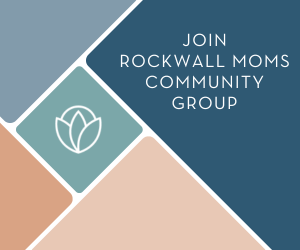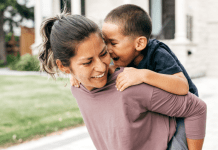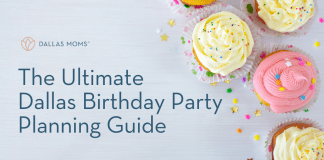There is a club that absolutely no one wants to belong to: the baby loss club. If you have experienced the loss of a pregnancy, infant, or child, you’re automatically part of the club. And though the sisterhood of bereaved mothers can be helpful and healing, we all wish for no one else to become a member.
It can be challenging to know how to respond when you find out someone has lost a baby or a child. What is comforting for some may not be for others. And so many of the cliches around bereavement don’t fit this complex grief, as it is a topic not openly talked about. But someone you know has experienced pregnancy or infant loss. According to the CDC’s most recent statistics, the infant mortality rate in the U.S. is 5.4 deaths per 1,000 live births.
I know. It’s sad and hard to think about and talk about. But we need to have these hard conversations. We need to have awareness so that the next mom or dad who joins this terrible club knows they aren’t alone.
One of my friends and fellow Dallas Moms contributors and I met through our living sons. They were in kindergarten together and became fast friends. When Leslie became pregnant again, I was thrilled for her and for her sweet boy who was excited to be a big brother. And when she lost her darling Andres, I was heartbroken for her and her family. Leslie and I are in different stages of our grief and loss experiences. My twins, Liam and Sebastian, died in 2011, before my subsequent children were born. My living children know about their older brothers and how they died, but they didn’t experience that loss the way Aaron experienced the loss of his little brother, who died in 2020.
Leslie and I want to share some things you may not know about this type of loss. And if you’re part of the club, we want you to feel seen and heard.
What is most helpful for people to say when they learn about your loss?
Rori: “I’m so sorry for your loss,” is the simplest response. I’ve had people freeze up and say nothing at all which is awkward. And I’ve had people respond with their own loss stories. It has been long enough now that I can talk about it without getting emotional. And I know people are uncomfortable with this topic, so I really don’t have expectations around their responses.
Leslie: Looking at this question I can instantly think of the things to NOT say, but there were also some words that brought comfort. I often heard, “We love you and we’re thinking about you.” I could feel the love without anyone having to ask, “How are you doing?” I also found comfort when people mentioned Andres’s name and how he would be forever loved and remembered. That is and has always been one of my biggest fears: people forgetting he is part of our family.
What has been the most surprising to you about this experience?
Rori: That we can survive it. I think most parents will tell you they cannot imagine surviving the loss of a child. But the world keeps moving along and we keep breathing and paying bills. It is surreal sometimes. And I hate it for newly bereaved parents. I know the first months are a fog, followed by a year of painful anniversaries and heartbreaking holidays. And the waves of grief that slam you out of nowhere for the first couple years. I wouldn’t wish it on anyone.
Leslie: That joy and sorrow can coexist. This is one of the hardest things I learned to accept in therapy. How can I feel both? I want to feel joy again, but I’m sad. Grief just has so many complexities to it. I remember Rori telling me that it wouldn’t always feel this way early on, and while I knew she had gone through loss and had “survived it,” my brain couldn’t understand this being true. Now, 2.5 years later, I can see the truth in those words. Andres will forever be part of my life, and his life brings me joy through the acts of love we do for others on his birthday. And yes, I do have moments where I can go back to the same feelings of early grief, but the fog and immense heartbreak I felt back then isn’t as strong.
What has been helpful for you?
Rori: Early on, the most helpful thing was attending in-person support groups locally through MEND.org. Meeting other mothers (and some dads, too) who went through this and were able to talk about it without crying or mothers who could laugh. They showed me that carrying this loss wouldn’t always feel so heavy and overwhelming. What is helpful for me now is living a life that honors Liam and Sebastian and being the best mom to my rainbow babies. Well, they aren’t babies anymore. But they’ll always be my babies.
Leslie: Having a community of people who are there for you. Our loss happened right at the beginning when the world shut down due to COVID. We were so blown away by everyone’s love and how they took care of our family. Also, finding a community of loss moms who know exactly what you are going through and validate your feelings when you feel like you’re going crazy.
I was the first one among my friends to go through neonatal loss and it can be very lonely. I know my friends love me and did the best they could to comfort me, but I was usually the one who helped lead them into their next steps in motherhood. Being part of communities such as Hope Mommies, Abel Speaks, and Gathering Hope, I was able to see that while the beginning stages of grief are a beast to tackle, you slowly start seeing glimpses of joy and happiness as time goes by. Creating awareness for others through my Instagram posts and celebrating his birthday with acts of love has given me a way to “parent” him.
What would you tell someone whose loved one is grieving a child?
Rori: Whenever I meet someone new to this experience, I tell them I know words do not help but that I am so sorry for their loss. I tell them they can reach out to me anytime. And I encourage them to find a support group meeting in their area or to find support groups online. This kind of loss upends the normal order of things. People are not supposed to bury their children. And not only does it upend our present situation, but it upends the entire future we had envisioned for ourselves and our family. If you know someone who is going through this experience, be there for them. Say their child’s name. Remember them on Mother’s Day and Father’s Day.
Leslie: This journey can feel very lonely at times, even when you have a room full of people. The first thing I would tell them is to be understanding that their loved one’s world has completely changed. I know I struggled a lot with trying to navigate the “new me” in my “old world,” and it was very hard for my mom and husband to understand why I wasn’t “myself” at times. I knew that I could never go back to being the same Leslie prior to losing Andres.
Secondly, be there for them, whether it’s through a meal, helping around the house (I know with a C-section I really needed this), remembering their baby’s birthday, including their baby in major holidays. I had a friend who would reach out to me every month on the fourth, telling me how she was thinking of me and Andres that day—she also had gone through loss. Just love them on their good and bad days.













